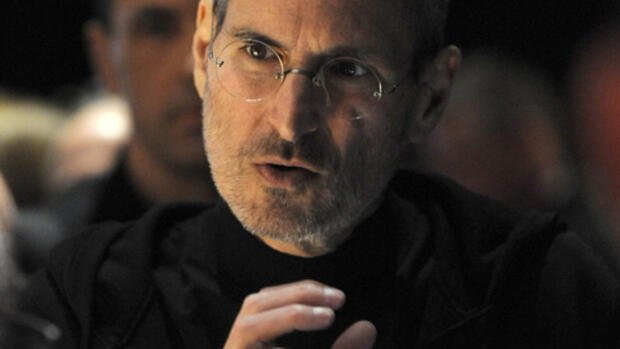Stay Foolish Stay Hungry
There is an unresolved argument of nature versus nature. Which of the two plays a bigger role in influencing the course of one’s life? In his commencement speech at Stanford in 2005, Steve Jobs raised three turning points in his life, arguing for the complexity and unpredictable nature of the world that renders the age-old argument meaningless.
" Not out of defiance, but because he recognised that it was not necessary for the life he wanted to pursue . " - Shu En
Jobs opens with his first story: his birth mother’s insistence that he was to attend college. His mother nearly refused to let him be adopted to parents who were not college graduates. Even as an infant, college framed the focus of his life. Ironically, as most of us know, this story ends with Steve Jobs dropping out of college. Not out of defiance, but because he recognised that it was not necessary for the life he wanted to pursue. As significant college was in his upbringing, he let it go, choosing to focus on a bigger picture.
He is not the only one who dropped out of college with similar ideas. With the rising cost of education and the ever evolving landscape of jobs, youth today question the necessity of a degree. But there are many examples to support the usefulness of a degree, and despite many students wanting careers that do not require one, they complete university for the safety net it provides.
Steve Jobs did not intend the first story as a cry to rally against the system and drop out because college is useless. It was simply a reminder to not take a passive role in your life, and to be actively aware of the bigger picture. Even so, his journey after dropping out is also a forthright admission that the less travelled path is fraught with difficulty.
He turned all that down for the whimsical wanting of the heart, and had the grit to sustain that wanting for more than 30 years.
Steve Jobs stories are points of crossroads. Faced with a decision, he chose to do what felt right to him, over what was undoubtedly a safer and easier option. It was hard for me to grasp the difficulty of making the decisions he had made– the doubts he would have faced at every turn and the uncertainty of making the wrong decision. Steve Jobs, with his talents, would have easily risen the ranks at an established company after graduating college. His renown in starting Apple should have been more than enough to secure him a high paying job at any firm after he was fired. He would have a comfortable position and a high salary, and a chance to reap the rewards of his labour. He turned all that down for the whimsical wanting of the heart, and had the grit to sustain that wanting for more than 30 years.
It is even harder to listen to what we want these days. With the internet and social media, our perspective is flooded with influences. There are instagram pictures of an idealised lifestyle, youtube videos on how to achieve your dreams, linkedin profiles of accomplishments to have. A career in investment banking is glamourized as a successful and smooth career, while a career in the arts is always forewarned with failure and risks.
Despite all this, the heart knows what it wants. The courage to follow your dreams is often branded by society as whimsical, a hallmark of youth that would get stamped out once you enter the real world where money talks. But many adults are making career switches, coming to the realisation that life is too short to be doing what they don’t want to do. For those whose feet point themselves towards the unbeaten path, we still need the courage to take the first step.
How do we muster the courage to take the leap of faith? Memento mori, to remember death. In his third story, Steve Jobs asks the audience to gain courage by reminding themselves that each day could be their last .
Perhaps it is a little macabre (and unrealistic) to ponder the existential dread of death everyday. But Jobs is not hoping for the fear of death that drives us to action, but the fear of having a life unlived. We assume that life will present us with many more crossroads and choices, but the reminder that our lives can be cut short any time, it forces us to reevaluate our priorities.
Having the courage to take the leap of faith starts from the small decisions.
Many of us want to pick up a new instrument or a sport, but believe we are past the age to take up such hobbies. Making small conscious decisions to prioritize your wants over your insecurities will help build up the courage to take the leap of faith on important life changing decisions. Someone once said, to similar effect, that you will only regret the things you didn’t do rather than the things you did.
" To stay hungry is to keep wanting, to incessantly demand your ambitions come to life. " - Shu En
To stay hungry is to keep wanting, to incessantly demand your ambitions come to life. To stay foolish is to have the blind courage to take the first step despite the uncertainties, and to keep running ahead without thinking about the “what ifs”. There is folly in blindly charging into the unknown, but it is perhaps even more foolish to hold back on yourself and wait for life to sweep you along.
Written by Shu En
WATCH THE VIDEO
As of today with more than 38 Million views on youtube of
Steve Jobs’ 2005 Stanford Commencement Address
” Drawing from some of the most pivotal points in his life, Steve Jobs, chief executive officer and co-founder of Apple Computer and of Pixar Animation Studios, urged graduates to pursue their dreams and see the opportunities in life’s setbacks — including death itself — at the university’s 114th Commencement on June 12, 2005. ” – Stanford



